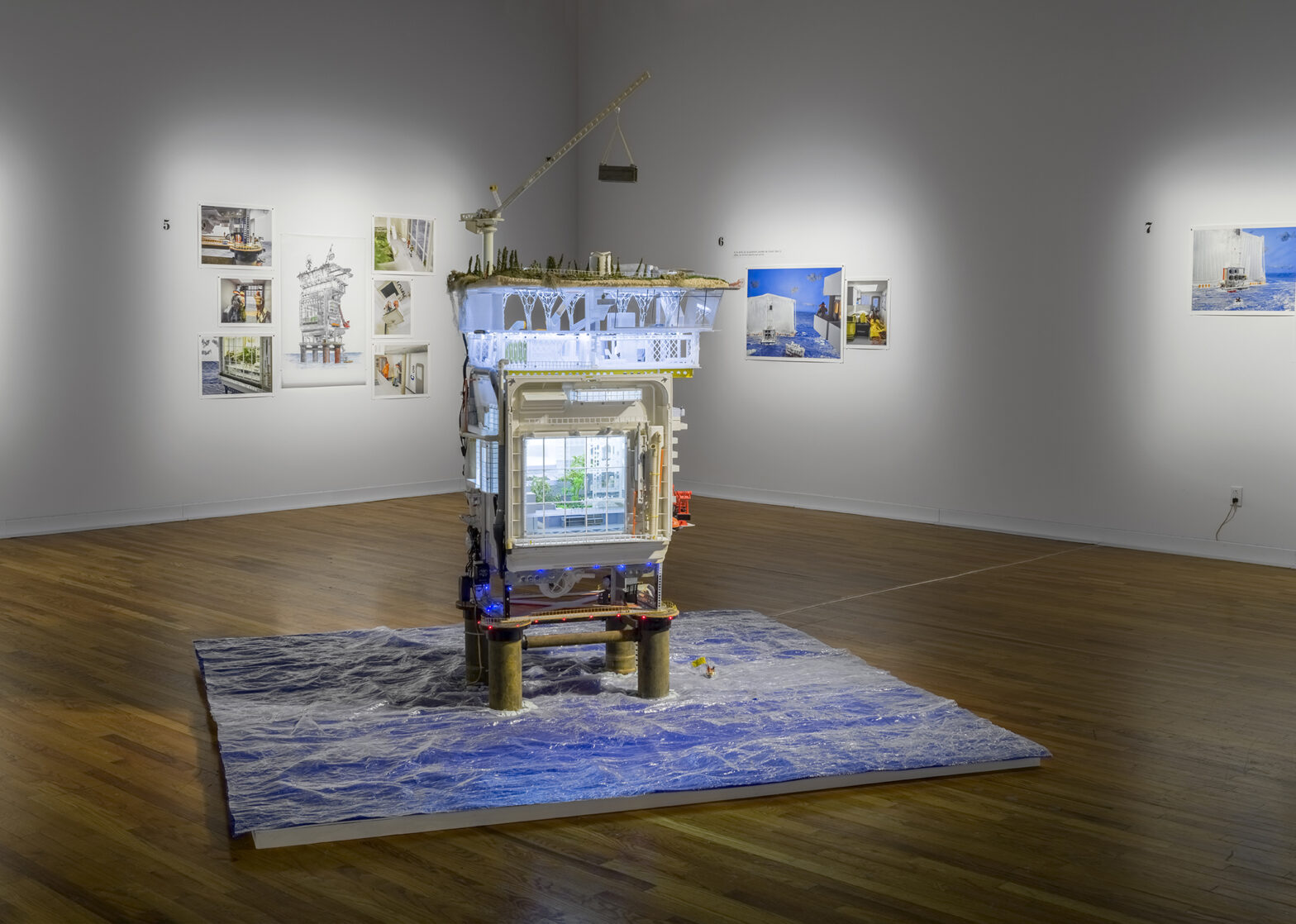A science-fiction story inspired by photo novels and comics about the planet’s last known iceberg.
In his photographic installation La fin des icebergs, Daniel Corbeil depicts the actions of two opposing interest groups clashing over one of the planet’s last known icebergs. These positions are at opposite ends of the spectrum of reactions to climate change and its catastrophic consequences. Without necessarily naming it, they attest to a frenzy provoked by the realization of the possible end of a world and of civilization as we know it, at the very moment when more and more people are suffering the consequences.
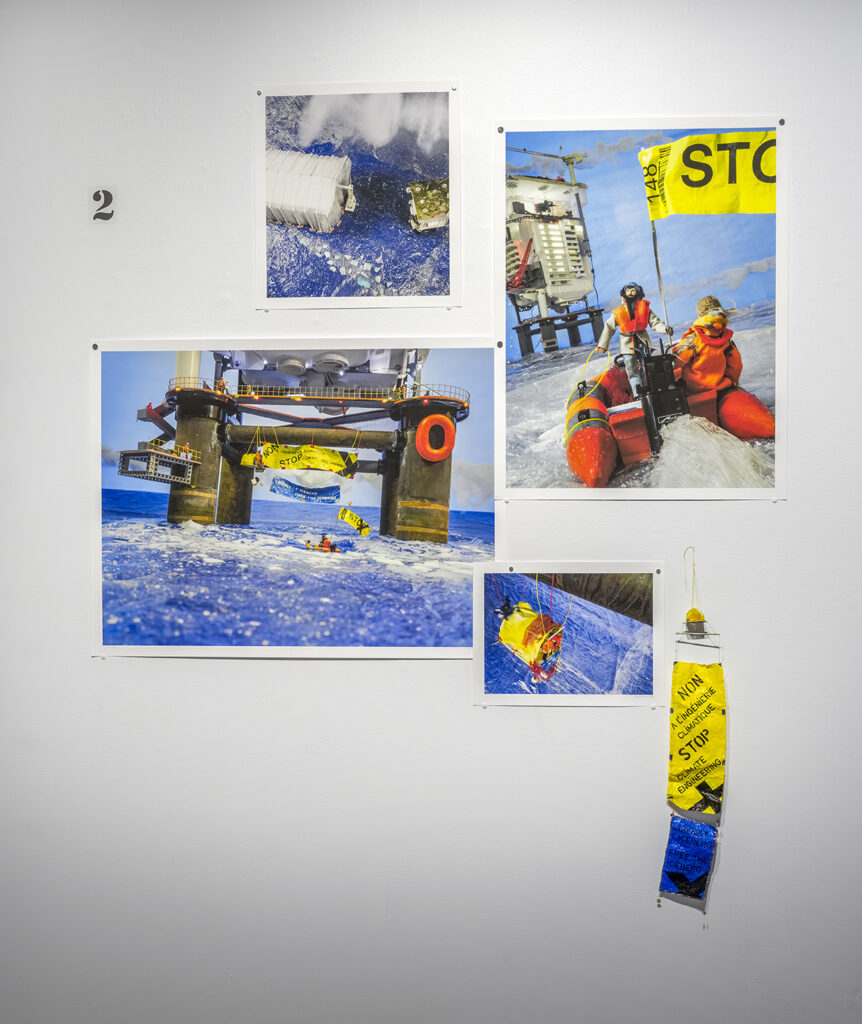
The clash between these concerted actions invites us to re-examine the discourse and imagination generated by the current situation and the challenges it presents, largely marked by an ambient and demobilizing catastrophism. In this respect, Daniel Corbeil invites us to reconsider our preconceptions, to go beyond the rhetoric of world collapse or the apology of our salvation thanks to technology. In a future that’s hard to estimate, if there are any humans left on earth, their values and points of view will differ greatly from those that drive and mobilize us today. Trying to anticipate them in order to encourage their emergence is therefore also a subtext of the science-fiction story imagined by Daniel Corbeil.
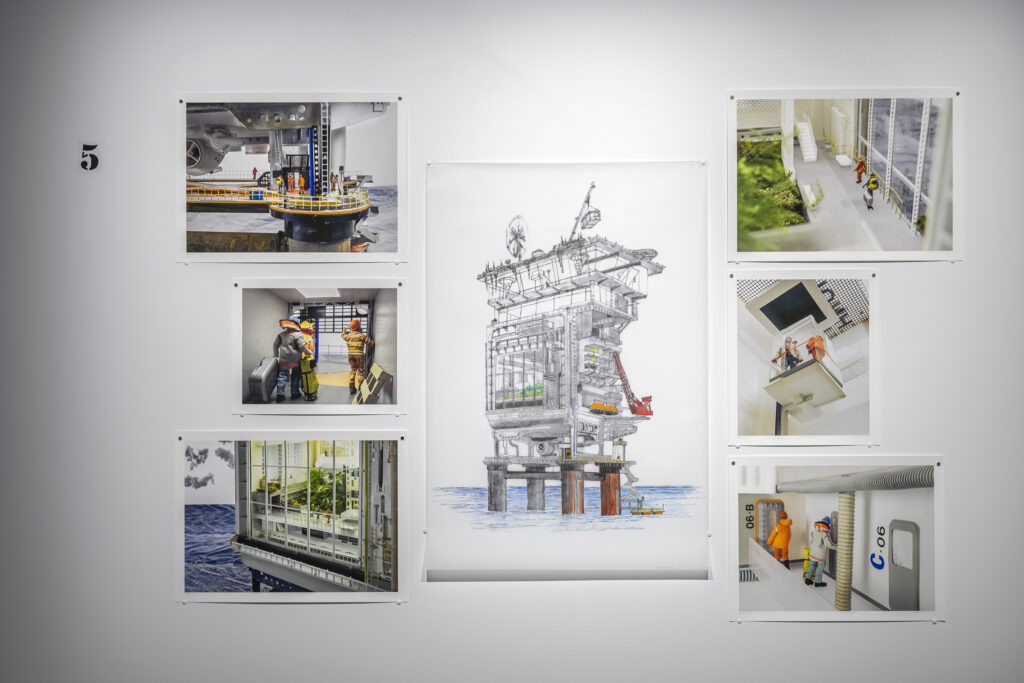
Given the current situation, is it still possible to believe in sustainable development, energy transition and corporate social responsibility, or in the cumulative impact of our small individual gestures? We have to admit that pragmatism and the recurrence of exceptional events are putting these seemingly salvific avenues to the test.
As Nicolas Langelier points out in his introduction to the “End of a World” issue of Nouveau Projet, summarized here, we will have to adapt radically to what is coming, recognize the end of our world and take steps to transform our actions accordingly, beyond denial of the situation or a hedonistic withdrawal encouraged by consumerism. In these circumstances, and despite the divisions they generate, courage means encouraging and nurturing dialogue and collaboration, seeking to develop a collective consciousness around these issues, and mobilizing a community to rethink our relationship with the world. Only the expression of citizens’ voices in this direction allows their perspectives to be taken into account, and ensures a real counterweight to the political and economic forces that are often complicit in the current climate and ecological crisis. Daniel Corbeil’s persistence in expressing his concerns about the climate crisis from work to work corresponds to an artistic gesture in this direction, on a small scale.
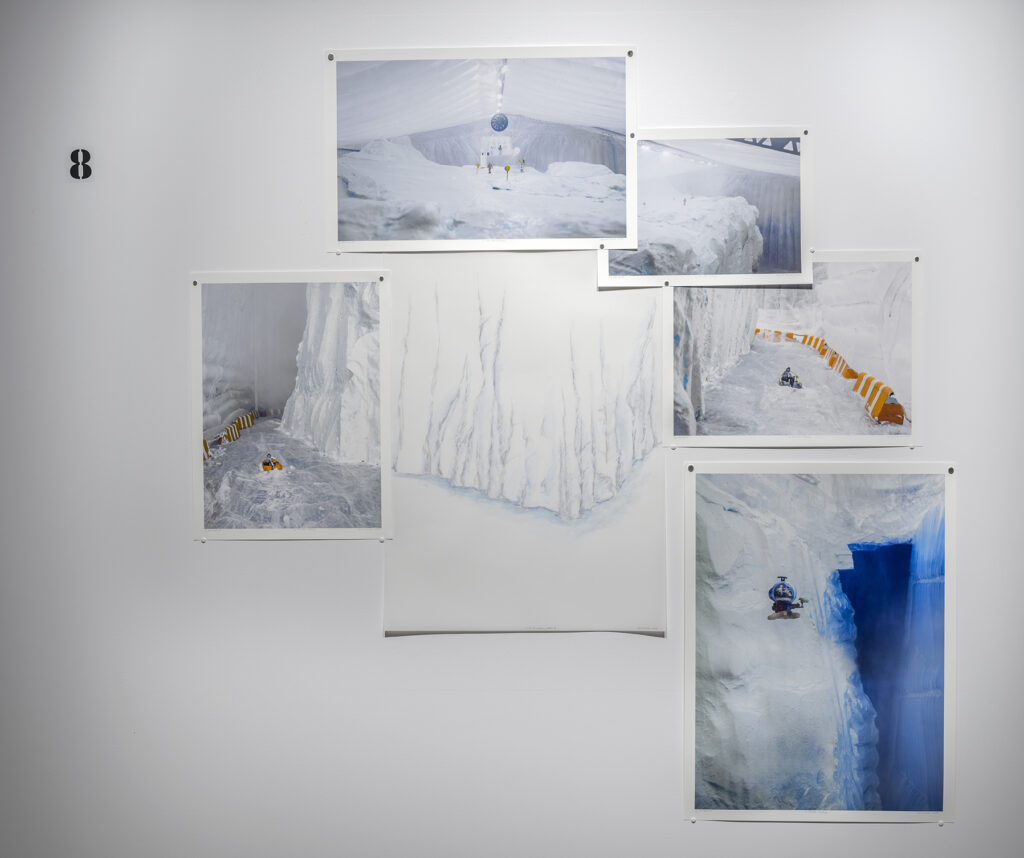
To do so, he adopts a creative process that involves a measured consumption of materials. In fact, all the elements used are in fact reused. His practice of recycling residues is an antidote to unbridled consumerism, interpreted as contributing to environmental pressures. Various materials – plastic film or netting, paper and cardboard – are reused, as are household appliance components, shapes used to secure objects in their packaging, and empty product containers of all kinds. In this way, the artist raises the question of individual responsibility in the face of current issues, and explores alternative modes of production. In addition, the meticulous attention to detail devoted to creating the assemblages featured in his photographs illustrates a certain ethic of care and attention to things, and the investment required to revalue them proves to be another way of producing and consuming.
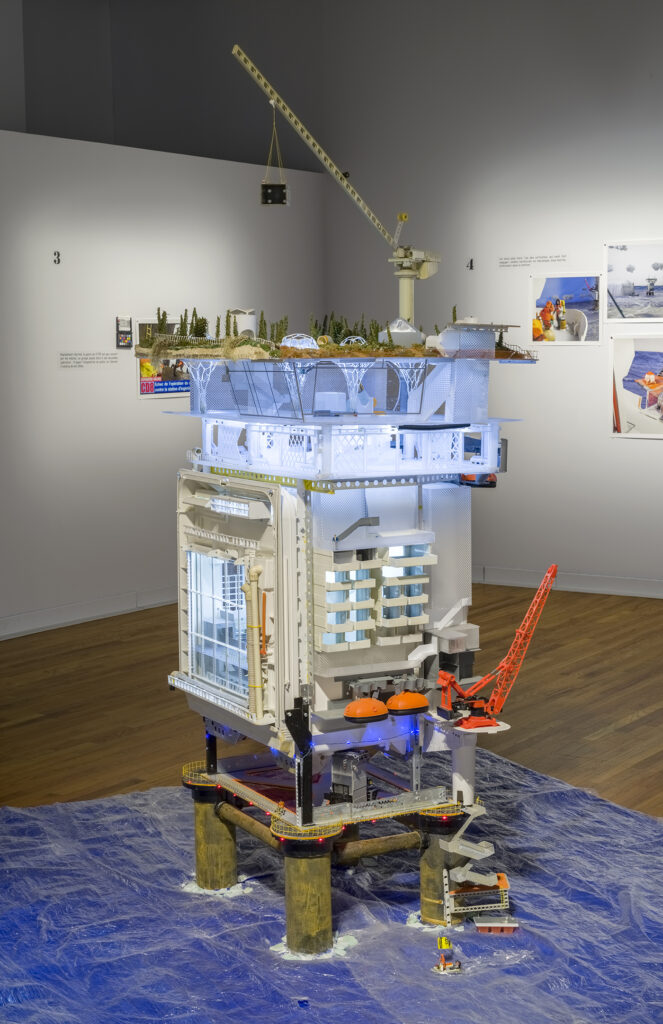
To these questions explored by Daniel Corbeil are added the different temporalities staged in his narrative, notably the time of science fiction, but also the moment when it is written. Indeed, in his practice, the geological time of the Anthropocene and of human history, that of narrative fiction, and that of artistic production overlap, confronted with the transience of the photographic click and the consumerist impulse, all rhythms linked to the issues described above that interpenetrate as we experience the work.
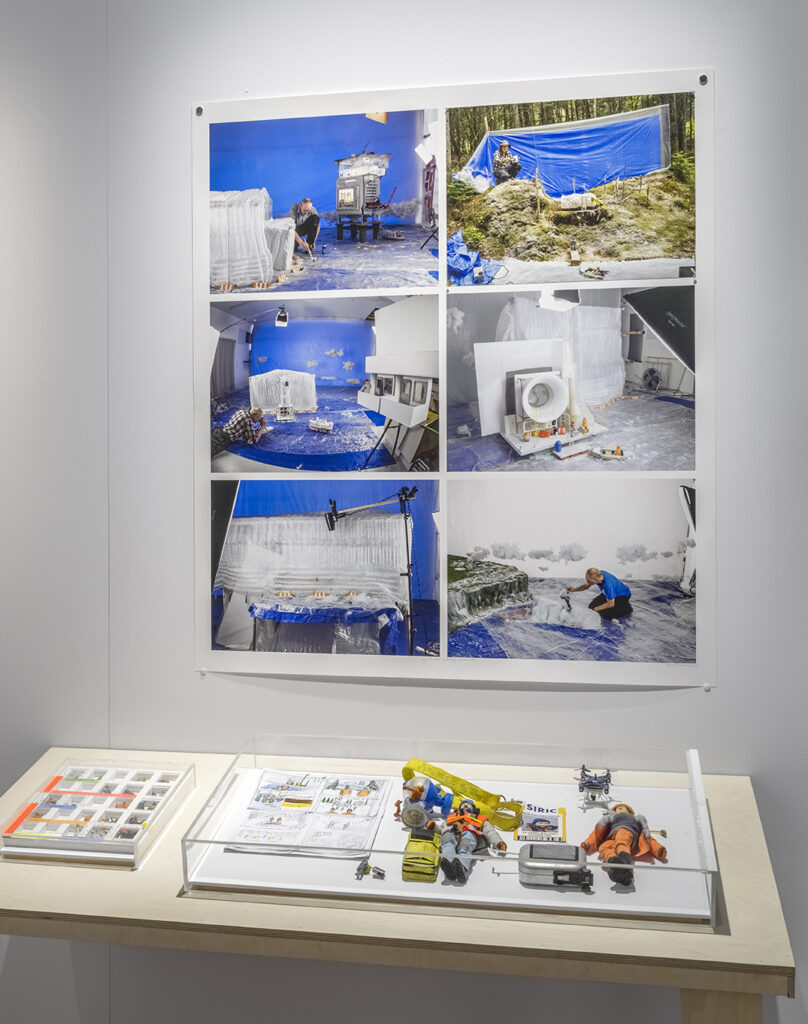
- Nicolas Langelier, « Les vulnérabilités sans fin », Nouveau projet, n°18, La fin d’un monde, p. 18-23. (In French)
- In 2023, the exhibition “Daniel Corbeil. La fin des icebergs” was presented at Maison de la culture Janine-Sutto, from January 26 to March 3, Maison de la culture Mercier, from March 18 to April 16, Salle de diffusion de parc-Extension, from June 21 to August 20, and Maison de la culture Marie-Uguay, from September 5 to October 15.
(Translated with DeepL.com)

